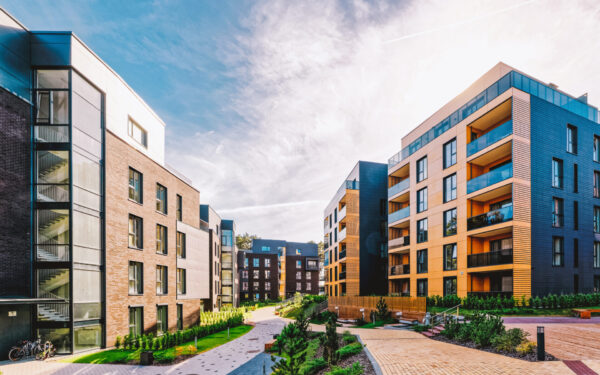Branded residences continue to grow in popularity across Ontario, offering a unique blend of luxury living and high-end hospitality. As these projects multiply, so do the legal and operational complexities that come with them.
In Part 1 of this two-part series on branded residences, we explored the foundational elements developers and hotel companies must consider — including project structure, governing documents, and residential sales and marketing agreements.
In Part 2, we continue the discussion by examining three additional and equally critical aspects: the Technical Services and Pre-Opening Agreements, the Residential Management Agreement, and the Shared Facilities Agreement. These elements play a central role in ensuring brand standards are met, legal requirements are respected, and long-term relationships between hotel operators, developers, and homeowners are preserved.
4. Technical Services Agreement and Pre-Opening Agreement
Before opening, a Technical Services Agreement (“TSA”) may be entered into, which outlines the design specifications for the branded residence and hotel and otherwise sets out approval processes for plans and specifications for the project.
The TSA will often specify brand aesthetic, finishes and furnishings and outline brand standards that must be followed. In some cases, a model suite may be created to ensure compliance with brand standards. In return for these services, a design fee, whether fixed or on a per unit basis or a combination thereof, is remitted to the hotel company.
As part of the TSA or as a separate agreement, pre-opening services may be offered by the hotel company. The Pre-Opening Agreement addresses the essential activities needed to prepare the building for operation, such as construction, budgeting, training, and securing necessary licenses and permits. The brand or hotel company typically has the authority to set conditions that must be met under both agreements to ensure the property adheres to brand standards.
5. Residential Management Agreement
The Residential Management Agreement outlines the specific terms and responsibilities related to the management of the property and preparation of budgets. When drafting this agreement, however, developers and hotel companies must be aware of local laws and regulations that govern the management of condominiums.
In Ontario, the Condominium Management Services Act, 2015 (the “CMSA”) provides that any condominium corporation must be managed by a licensed condominium provider. This not only applies to the residential condominium component, but also to the management of any shared facilities in which a condominium corporation is a party.
Both the manager and management provider must be licensed under the Condominium Management Regulatory Authority of Ontario (CMRAO). If the hotel component is freehold (or not a condominium corporation) then the CMSA does not apply regarding the management of the hotel, but it would apply regarding the management of any shared facilities in which the hotel is party.
Section 111 of the Condominium Act, 1998 in Ontario gives the board of a condominium corporation the right to terminate any management agreement entered into with a person before the owners elect a new board upon sixty days written notice. This means the hotel companies must be cognizant of the possibility that the newly elected board of the condominium corporation is permitted by law to terminate the management agreement. That being said, developers will often include obligations in the declaration, which require the condominium corporation to assume and assign the management agreement.
There is some uncertainty regarding the payment of termination or cancellation fees for any contracts entered into by the developer and terminated by the first board of directors. The existing Condominium Act, 1998 is silent about such fees being payable even if there is a statutory right to terminate.
Proposed amendments have been drafted, which expressly state that if the condominium corporation terminates these agreements as prescribed, then there will be no liability even if the agreement provides for termination or cancellation fees. These proposed amendments are set to expire at the end of 2025 if they do not come into force by then.
Irrespective of the right of termination for condominium corporations, most hotel management agreements will provide a right of termination for the hotel company in the event the residential management agreement is terminated.
6. Shared Facilities Agreement
Part of the appeal of a branded residence for condominium owners is access to hotel-style amenities, such as room service, pools and other luxury services. To facilitate this, a Shared Facilities Agreement is typically put in place, allowing residents to use these amenities for a fee (we discussed such fee in Part 1).
Section 113 of the Condominium Act, 1998 authorizes a condominium corporation to apply for a court order to amend or terminate a mutual use agreement within twelve months of the turnover meeting, provided that:
- the disclosure statement did not “clearly and adequately” disclose the provisions of the agreement; and
- the agreement, or any of its provisions, produces a result that is “oppressive or unconscionably prejudicial.”
The Ontario Superior Court of Justice clarified the meaning of clear and adequate disclosure in TSCC 2130 v. York Bremner Developments Limited. A declarant can impose an unfair or one-sided mutual use agreement if the declarant brings those provisions to the attention of the buyers and explains the risks of oppressive/unconscionably prejudicial results in the disclosure statement. It is not sufficient for a declarant to simply include the mutual use agreement in the disclosure statement. Instead, a declarant must provide sufficient information for “a buyer to see (clearly) and understand (adequately) the provisions that may result in oppression or unconscionable prejudice.” That said, a declarant is not required to disclose every possible oppressive consequence, whether anticipated or not, but rather only those that are reasonably foreseeable or known at the time of disclosure.
There are a host of other considerations and agreements to be mindful of when creating a branded residence. This two-part article attempts to provide some context for the Ontario market and is by no means an exhaustive summary of considerations regarding the development of branded residences.
Even during economic uncertainty, given recent trends, there appears to be growing demand for branded residences in Canada and across the globe. To learn more about how we can support your branded residence initiative, we invite you to contact a member of our Condominium & Strata Group.





